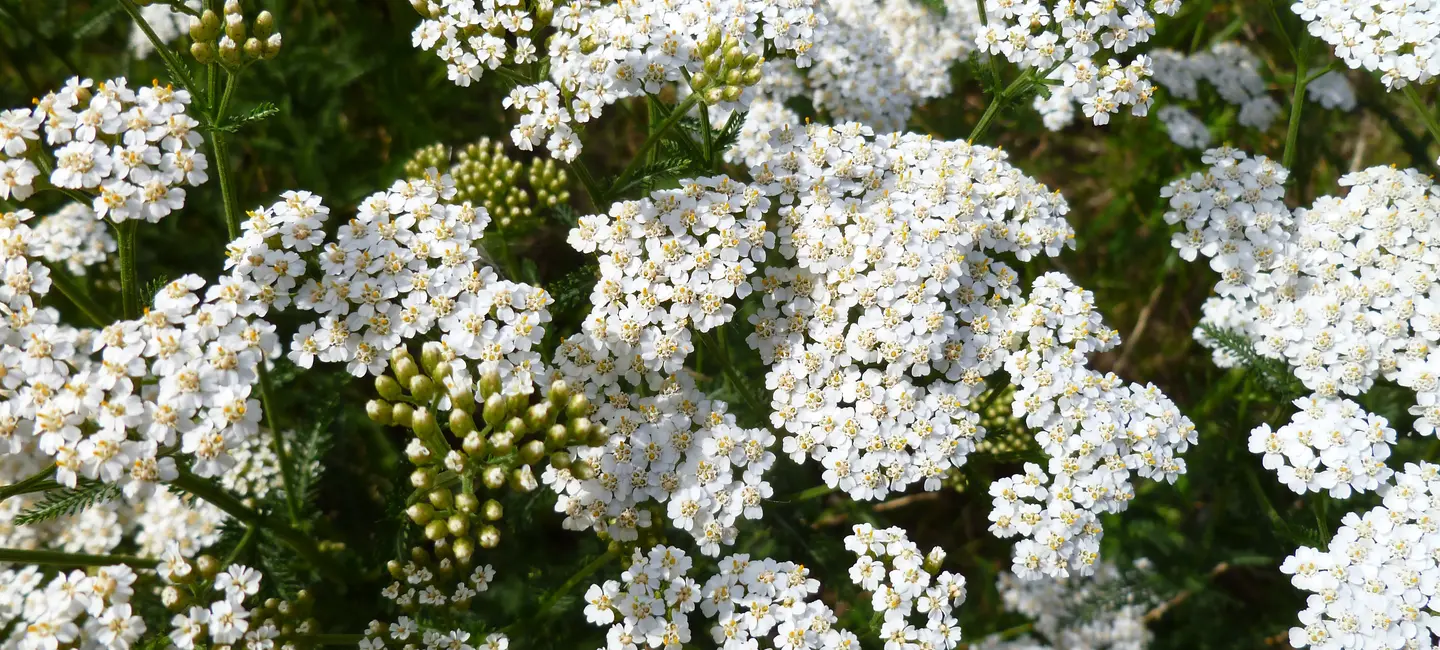
Yarrow (Achillea millefolium) is a plant that grows throughout the world. The above ground parts are used to make medicine.
Yarrow contains chemicals that might help to stop stomach cramps and fight infections.
People commonly use yarrow for eczema, irritable bowel syndrome (IBS), wound healing, and many other conditions, but there is no good scientific evidence to support these uses.
Yarrow is sometimes called bloodwort. Don't confuse this with Bloodroot.
Is It Effective?
There is interest in using yarrow for a number of purposes, but there isn't enough reliable information to say whether it might be helpful.
Is it Safe?
When taken by mouth: Yarrow is commonly consumed in foods. But yarrow products that contain a chemical called thujone might not be safe. Thujone is poisonous in large doses. Yarrow is possibly safe when taken in doses of 250-500 mg daily for 12 months.
When applied to the skin: There isn't enough reliable information to know if yarrow is safe or what the side effects might be. In some people, yarrow might cause skin irritation.
When applied into the vagina: Yarrow is possibly safe when applied in a cream for up to 7 days.
Special Precautions & Warnings:
Pregnancy: Yarrow is likely unsafe when taken by mouth during pregnancy. It can affect the menstrual cycle and might cause miscarriage.
Breast-feeding: There isn't enough reliable information to know if yarrow is safe to use when breast-feeding. Stay on the safe side and avoid use.
Allergy to ragweed and related plants: Yarrow may cause an allergic reaction in people who are sensitive to the Asteraceae/Compositae family. This includes ragweed, chrysanthemums, marigolds, daisies, and many others. If you have allergies, be sure to check with your healthcare provider before taking yarrow.
Lithium
Interaction Rating=Moderate Be cautious with this combination.
Yarrow might have an effect like a "water pill." Taking yarrow might decrease how well the body gets rid of lithium. This could increase how much lithium is in the body and result in serious side effects. Talk with your healthcare provider before using this product if you are taking lithium. Your lithium dose might need to be changed.
Herbs that contain thujone: Yarrow contains a chemical called thujone. Thujone can be poisonous when taken in large amounts. It can cause seizures, kidney problems, and vomiting. Taking yarrow with other supplements that also contain thujone increases the risk of these effects. Examples of supplements that contain thujone include oak moss, tansy, thuja, and wormwood.
There are no known interactions with foods.
Yarrow has most often been used by adults as a plant extract or tea. It's also been applied as an ointment or cream and used in gargles. Speak with a healthcare provider to find out what type of product and dose might be best for a specific condition.
Achilee, Achillea, Achillea borealis, Achillea lanulosa, Achillea magna, Achillea millefolium, Achillée, Achillée Boréale, Achillée Laineuse, Achillée Millefeuille, Acuilee, Band Man's Plaything, Bauchweh, Birangasifa, Birangasipha, Biranjasipha, Bloodwort, Bumadaran, Carpenter's Weed, Civan Percemi, Common Yarrow, Devil's Nettle, Devil's Plaything, Erba Da Cartentieri, Erba Da Falegname, Gandana, Gemeine Schafgarbe, Green Arrow, Herbe à la Coupure, Herbe à Dindes, Herbe aux Charpentiers, Herbe Militaire, Huile Essentielle d'Achillée, Katzenkrat, Little Feather, Milefolio, Milenrama, Milfoil, Millefeuille, Millefolii Flos, Millefolii Herba, Millefolium, Millegoglie, Noble Yarrow, Nosebleed, Old Man's Pepper, Plumajillo, Rajmari, Roga Mari, Sanguinary, Soldier's Wound Wort, Sourcil de Vénus, Staunchweed, Tausendaugbram, Thousand-Leaf, Wound Wort, Yarrow Essential Oil.
Information on this website is for informational use only and is not intended to replace professional medical advice, diagnosis, or treatment. While evidence-based, it is not guaranteed to be error-free and is not intended to meet any particular user’s needs or requirements or to cover all possible uses, safety concerns, interactions, outcomes, or adverse effects. Always check with your doctor or other medical professional before making healthcare decisions (including taking any medication) and do not delay or disregard seeking medical advice or treatment based on any information displayed on this website.
© TRC Healthcare 2024. All rights reserved. Use and/or distribution is permitted only pursuant to a valid license or other permission from TRC Healthcare.
